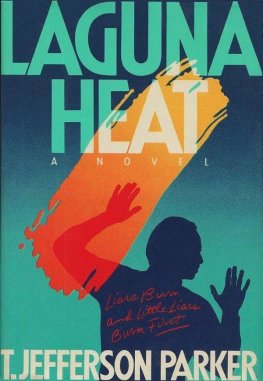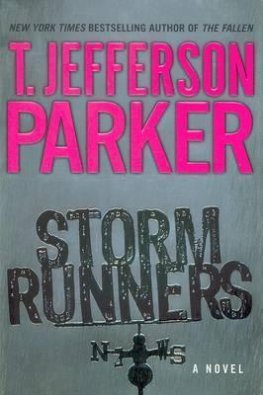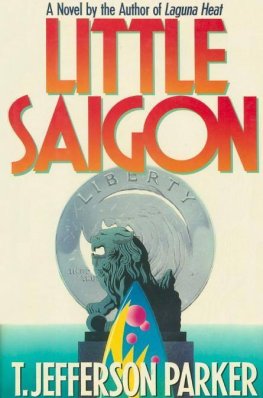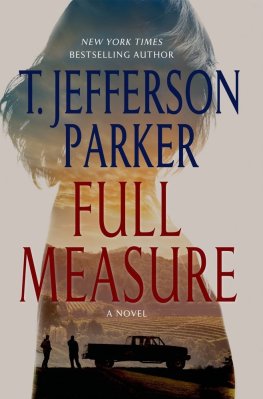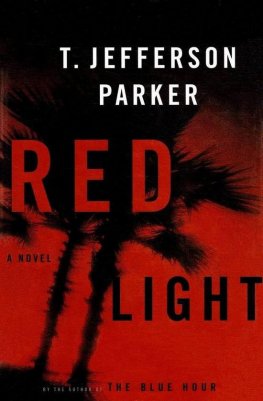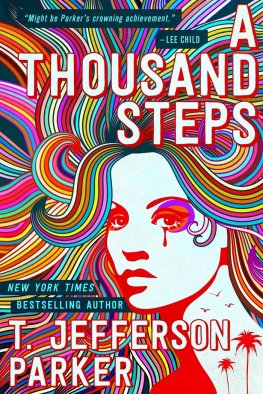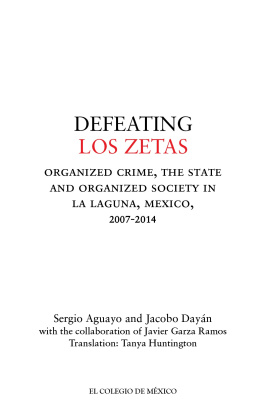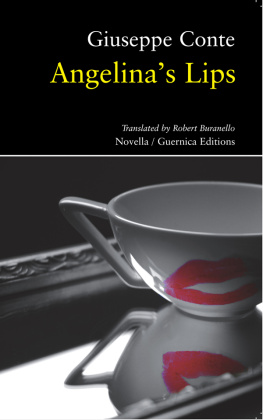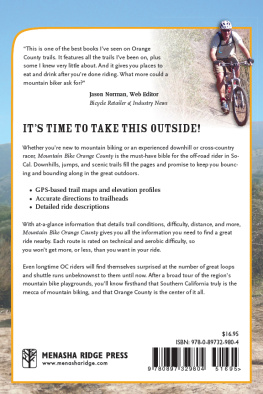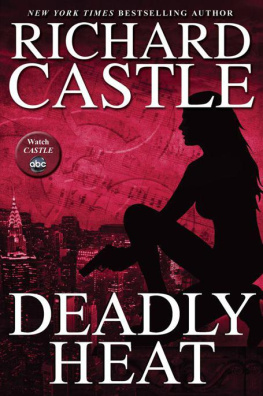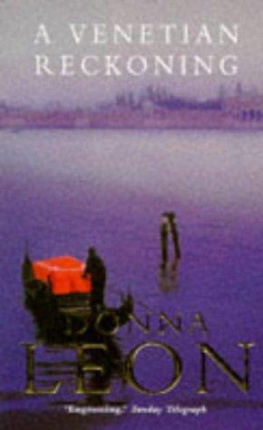T. Jefferson Parker
Laguna Heat
To Robert and Caroline, for their faith
To Lori, for her patience
A perfect morning in a city of perfect mornings, an artist would have worked, a god would have rested.
The convertible slowed as it approached the stables, then bounced from the road onto a gravel driveway. Its headlights swung left-to-right, acute angles filling with dust, while gravel popped under the tires like grease in a skillet.
The driver, by nature an early riser, had not been fully awake until moments before when a fawn wandered onto the road ahead of him. He had jerked the wheel and watched in panic as the animal froze, stiffened on bony legs, and turned its wide black eyes to the headlights. The hood of the car flashed by and blotted the fawn from sight, but no impact. In the rearview mirror the driver watched it flicker into the scrub oak near the road, legs, ears, a tail. A thirsty search in a parched summer, he thought. If adrenaline were coffee, he just got a potful. His name was Tom Shephard, his rank was detective, and he was the new and sole member of the Laguna Beach Police Homicide Division.
Shephard followed the wide driveway past a corral, turning off the headlights and engine when three figures coalesced before him in the grainy, salt-and-pepper light of morning. To the east an orange glow preceded the sun, to the west the black sky was already softening to gray. It would be a while before the sun mounted the highest hill and announced itself to the city, nestled and still sleeping against the Pacific.
He pulled the Mustang under a stand of eucalyptus. The scrubbed, high-pitched aroma of the trees engulfed him as he stepped out and shut the door, his legs still shaky from the near crash with the fawn. A comet-shaped leaf spiraled into his trunk as he searched for his flashlight, which he located in a box of rags and car wax. He tested it, pleased that the batteries were still strong. When he closed the trunk a mockingbird began its morning chatter, which followed him up the driveway to the three figures that stood, heads bowed, flashlights aimed in front of them.
On the ground was a hump, and over the hump was a blanket. Shephard recognized his fellow police by their outlines: to the right protruded the telltale belly of Sergeant Grimes; to the left slouched the almost shoulderless frame of Carl Pavlik, the crime scene investigator; between them, her stocky curves undaunted by patrol garb, stood Lydia Worth, farthest from the blanket and first to speak.
I found him here in the driveway when I turned out to head back to town, she said. The door of the house was open. She raised her flashlight beam, which crossed weakly to the house and shivered around the open door. I dont know if its Tim or not. But this is his house and stable.
Shephard knelt down and turned back the blanket. He had seen the mask of death in so many expressions, so many forms. A hundred faces, a hundred deaths, a hundred chances to ready ones self for the next. But even a thousand wouldnt have prepared him for this. His knees weakened as he dropped the blanket and stood up.
What dya think of that, Wonderboy? Your first murder in Laguna. Style, drama, the creeps. We didnt want you coming down from L.A. and thinking this was just a quiet little town. Grimes flashed his light onto Shephards face. Shephard took it, turned it off, and handed it back.
Lydia, is this where you usually make your turnaround? Shephards voice sounded foreign and disembodied, even to himself.
Not until last week. I saw Tim downtown and he asked me to make a pass once a night. Before that I was using the road half a mile back. Even with the burnishing tones of sunrise playing against one side of her face, Shephard could see that Lydia Worth looked pale, stricken.
Why the pass? he asked. The headlights would strafe the house and the car could spook the horses. Horses, he thought. He hadnt seen any. For a moment he gazed at the skeleton of the empty corral.
He was worried about prowlers.
Rope off the driveway where it meets the road, please. Both places. Grimes, help her. Shephards voice took a decided pleasure in the order to Grimes, who didnt budge.
Think your big-city smarts can cut this one, Shephard?
With people like you helping, we cant lose, Jerry.
Grimes disgorged a grunt, which was immediately drowned by a phlegmy smokers cough. Shephard offered him a cigarette but Grimes aimed his stomach toward the road and spit.
People like me dont shoot kids, he said.
Shephard absorbed the insult without comment. He looked down to the blanket and lit the cigarette, believing that smoke might keep away the germs of death, just as it keeps away plague or mosquitoes. At any rate it was a conscience-easer, and better than no breakfast at all. The smoke rushed to his head and mixed with the smell of eucalyptus, which made it almost pleasurable. Beside him, the crime scene investigator unwrapped a piece of purple aromatic gum and placed it in his mouth. Grape, a Pavlik staple. He pocketed the paper neatly.
Carl, buddy. Happy August twenty-fifth, Shephard said.
Morning, Tom. Yesterday my horoscope said question marks are on the horizon. Look at all of them. Pavlik pushed back his glasses with a thin finger. He was a slight man with straight black hair and the perpetual look of someone who has just got out of bed. Only his eyes were free of the general sense of dilapidation; they studied Shephards face, then returned to the ground in front of them.
Lets see what we can answer. Shephard pulled back the blanket and looked again at the black and blistered face, scorched hairless and still oozing fluid, cheeks and throat distended like a bullfrog in mid-croak. Protruding from the forehead was a blackened rock. Then he noticed the odor, localized but distinct. Burned flesh, he thought, sweet and repellent. He pulled away the blanket. The body was an obscene extension of the face: chest a swollen quilt of blisters, stomach and genitals overrun with blebs, legs and arms an edematous outbreak. The only evidence of clothing lay in the burnt fray of material around the body perimeter and the twisted leather belt still fastened at the waist. The buckle, large and ovaloid, had sunk into the flesh. Only the bottoms of his bare feet had been spared.
Shephard realized that he was scarcely breathing. He stood up, exhaled, took another drag on the cigarette. Slanting vertigo, a queasy slosh in the stomach. He watched Lydia Worth drag a pylon from the trunk of her patrol car while Grimes waited. Shoot it, Carlos, he said.
Pavlik already had the camera out. He fastened the strobe, set the meters, and began. The strobe blinked efficiently, the body seeming to shift positions between each shot. Shephard turned away and looked up at the sun, now bisected by the hill in front of it. He noted that the mockingbird was still singing happily, immune to what was revealed below. Pavlik ran through the roll of thirty-six almost without stopping. Shephard waved the camera away and bent back down.
He worked carefully but quickly, tilting back the head, prying open the mouth and easing two fingers inside. Out came a wad of dry paper, green and white. Then another, and another. Six in all, with more beyond reach in the throat. Pavlik held out a plastic bag and Shephard dropped them in, saving the last. The wad was the size of a golf ball but much lighter. He stood up and unraveled it beneath the intent, bespectacled stare of Pavlik.
Bills. Two hundreds, two fifties, two twenties.
Three hundred and forty dollars, said Pavlik, a detail man. Shephard worked his fingers across the bills, locating in his flashlight beam the red and blue hairs, then dropped them into the bag. The crime scene investigator snapped it closed, as if the money might attempt an escape. Shephard looked down again.

